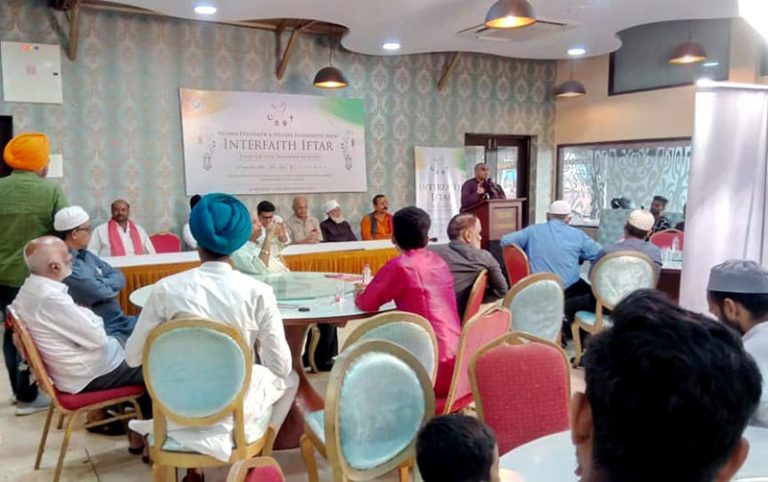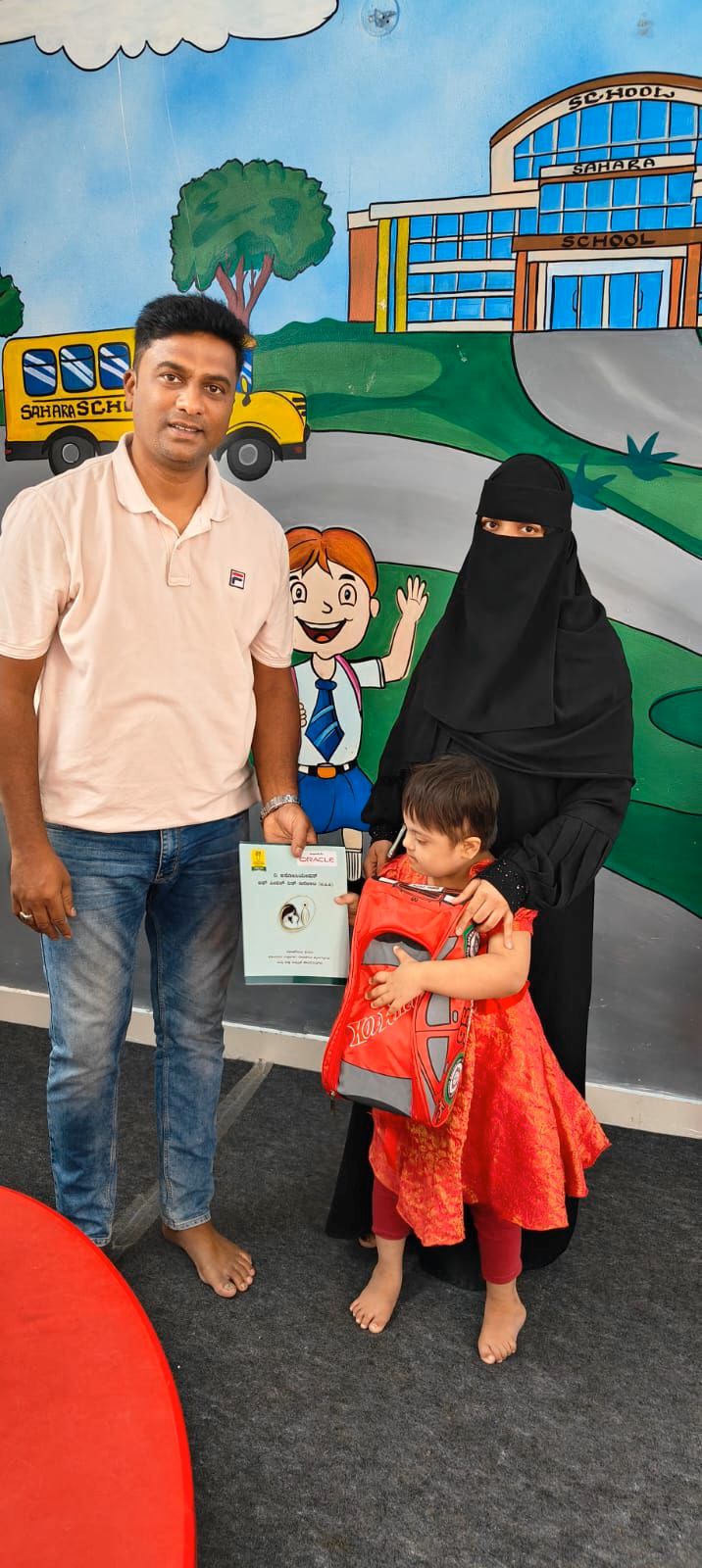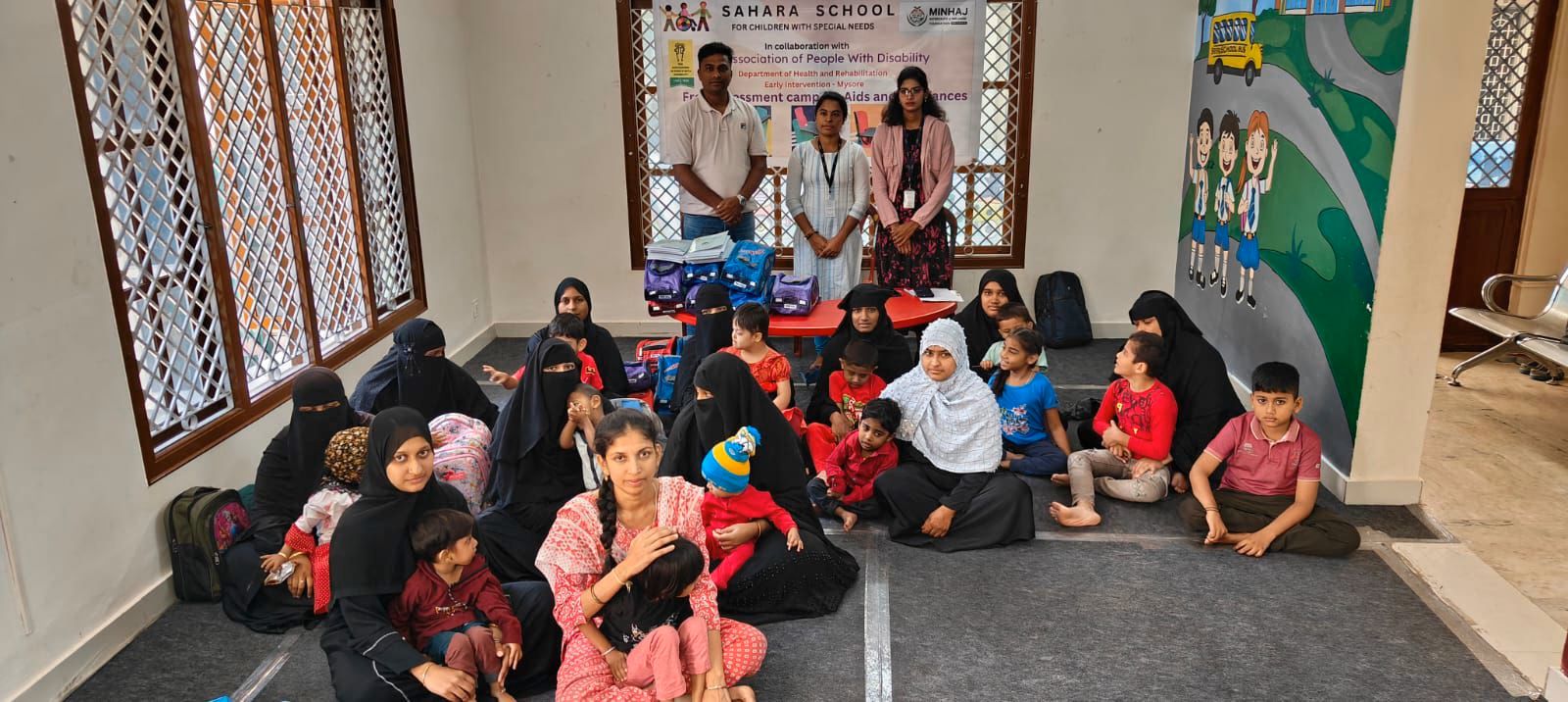2nd June 2019, Mumbai
On June 2nd, the Minhaj Interfaith and Welfare Foundation organized an Interfaith Iftar and Prayer Meet at Diwan-e-Khaas, Islam Gymkhana in Mumbai, marking a significant step towards promoting peace, understanding, and unity among different religious communities. This event was attended by religious leaders representing a diverse range of faiths, including Islam, Hinduism, Christianity, Buddhism, Jainism, Sikhism, and Zoroastrianism.
Distinguished members from reputable non-governmental organizations and local law enforcement agencies also joined in support of this remarkable initiative. The highlight of the event was the presentation of books on anti-terror curriculum authored by Shaykh ul Islam Dr. Muhammad Tahir-ul-Qadri to the distinguished guests, symbolizing a commitment to combat extremism and terrorism through education and interfaith dialogue.
Sajeed Shaikh, who conducted the proceedings, introduced all the chief guests to the audience, setting a tone of inclusivity and mutual respect. Acharya Shukla, one of the esteemed guests, expressed his congratulations to MIWF for facilitating an event that brought together religious leaders from diverse backgrounds. He emphasized that interfaith dialogue is not a luxury but a necessity in today's world, where understanding and collaboration among different faiths are crucial for global harmony.
Dr. Homi Dhalla shed light on various initiatives for peace initiated by renowned scholars and personalities such as the Dalai Lama, APJ Abdul Kalam, and Mother Teresa. He underscored the vital role of Sufism in restoring peace to humanity and referenced the teachings of Sufi luminaries like Al-Ghazali, Shaykh Sadi, and Nizamuddin Awliya, which remain relevant in contemporary times
Dr. Dhalla also emphasized the significance of interfaith dialogue as a means to establish lasting peace and proposed the introduction of courses focused on kindness and meditation for students. Maulana Anis stressed the need to revive humanity among religious adherents by emphasizing teachings of compassion and mercy. He shared various Islamic traditions that underscore the importance of serving humanity and highlighted mercy as the core of Prophetic teachings.
Amol Madame highlighted the critical role of youth engagement in interfaith dialogues and conferences. He argued that, amidst the prevailing climate of hate, initiatives like this event could serve as beacons of hope. Furthermore, he noted that fasting, a practice observed by various faiths, has the potential to combat negativity by teaching individuals to overcome anger and greed.
The Interfaith Iftar and Prayer Meet concluded with a collective prayer for peace, harmony, and unity, emphasizing the shared commitment of religious leaders to combat extremism and promote the values of love, compassion, and understanding among all communities.
Explore more
Qurbani Report 2025
Qurbani Report 2025
This Eid, your unwavering support turned compassion into action. Through Minhaj Interfaith & Welfare Foundation’s (MIWF) Qurbani Helpfeed 2025.
Sensory Kits for Sepcially Abled
Sensory Kits for Sepcially Abled
On September 18, 2024, a total of 22 children at the Sahara School for Children with Special Needs received free sensory kits, each valued at ….
Humanitarian Aid for Kutch Floods
Humanitarian Aid for Kutch Floods
On August 29, 2024, the Kutch region experienced severe rainfall, leading to significant flooding in various areas. The heavy downpour resulted in..
Qurbani Report 2024
Qurbani Report 2024
Almighty Allah says in the Holy Qur’an: “It is neither the meat 🥩 (of slaughtered animals) 🐑nor their blood that reaches Allah at all, but it…














